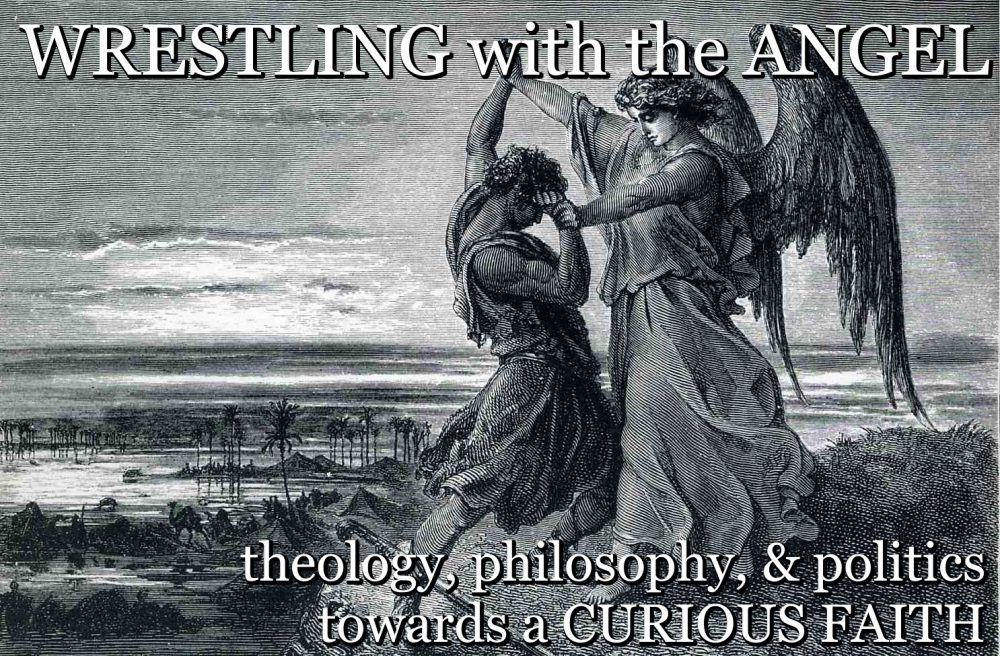 I am a huge fan of the Baffler; it’s one of the few magazines I actually subscribe to, because I think its content is almost always worth materially supporting. It occupies a particular space in left-leaning journalism, critique, and opinion-writing, critical of capitalism but also frequently self-reflecting and doubting, it’s a magazine that encourages critical thought all around–certainly something to be celebrated and supported. I’m also a big fan of Barbara Ehrenreich’s work, especially her journalism on income inequality.
I am a huge fan of the Baffler; it’s one of the few magazines I actually subscribe to, because I think its content is almost always worth materially supporting. It occupies a particular space in left-leaning journalism, critique, and opinion-writing, critical of capitalism but also frequently self-reflecting and doubting, it’s a magazine that encourages critical thought all around–certainly something to be celebrated and supported. I’m also a big fan of Barbara Ehrenreich’s work, especially her journalism on income inequality.
So I am slightly pained to find myself here preparing to heavily criticize Ehrenreich’s “Displaced Deities” in the most recent issue. It’s a piece so full of confused generalizations and self-confident nonsense that I’m not wholly sure where to begin. I suppose I might start by pointing out that it is a response of sorts to another piece in the same issue, Jackson Lear’s “Material Issue” (which itself is full of problems which I plan to address in this space at a future point). This issue of the Baffler is quickly shaping up to be my least favorite ever–and I haven’t yet finished it.
Ehrenreich hopes in this rather short article to propose an explanation as to how and why western thought has trended to what some have called the dis-enchantment of the universe. She proposes a timeline, beginning in our prehistoric past, when humans populated our world with innumerable spirits, a spiritual-religious position generally referred to as “animism”. Under animism, each individual material entity is seen as having a unique spirit, or at least the potential for one. Each rock, each tree, each stream might have a unique spiritual identity. From this perspective, Ehrenreich argues, the world was seen as rich with agency, vitality, and meaning.
Next, she says, many human societies gravitated towards polytheism, in which only a few dozen deities were recognized as real. Here, individual material entities were largely, if not completely, drained of their spiritual particularity. For the polytheist, if rocks possessed any sort of vital essence, it was under the aegis of a deity of rocks and stones–all rocks would be unified under a single spirit. Thus the spiritual world was delimited, constrained, constricted. From the polytheistic perspective, humans were a bit more lonely in the universe, Ehrenreich argues, and we were no longer able to feel ourselves in direct communion with our immediate surroundings.
Finally, Ehrenreich laments, the sterile age of monotheism descended upon humanity like a stultifying cloak. Now there was only one deity, abstract and distant. Agency and vitality were utterly drained from material reality, all of it being concentrated on a transcendent Being beyond the limits of materiality. For Ehrenreich, this sets the stage for the modern scientific (or scientistic) view of the world as as lifeless machine, utterly determined by the laws of science. She concludes that this view of life is inimical to political and environment justice, and yearns for a limited re-enchantment of the world, even as she admits that such a thing is not possible.
Now, in its simplest version, her conclusion, at least in its broadest outlines, seems to me quite valid and worth consideration. The idea that modern (and at least some varieties of post-modern) thought has generated for itself a perspective in which the world is vacated of any agency or subjectivity is well-founded, and I think Ehrenreich is absolutely correct to wonder about the ethical ramifications of such a view. But her attempt to lay the blame for this state of affairs on monotheism is historically, philosophically, and theologically incoherent.
It’s worth pointing out that, right at the outset of the article, Ehrenreich establishes her argument on a dubious premise: “One measure of the “vitality” of creation might be the number of gods or spirits thought to exist at a given time.” Now, she admits that any given criterion here would be difficult to justify, but she nonetheless carries on the remainder of her argument without even attempting to make such a justification. And this is crucial, and unfortunate, because this criterion largely amounts to equal parts question-begging and meaningless generalization.
The first concern we might have here is that Ehrenreich seems to be making her argument about quantity and not quality of life–or vitality, or subjectivity, or value. Indeed, she says as much: “It is the numbers, though, that concern us here.” But this surely results in an absurd conclusion, for if we are to judge the degree to which a spiritual or religious system recognizes vitality in the universe, then, according to Ehrenreich’s above criterion, we should prefer a system that multiplies spiritual entities endlessly. One spirit per object would rapidly be seen to be far too limiting. Why not ten, or a hundred? Why not claim that each material being has an infinitude of spiritual essences contained within it? (It’s worth pointing out that, accepting Ehrenreich’s criterion, Scientology is the best spiritual system on offer today, considering its claim that each human has many thousands of thetans associated with it–nevermind that it sees this diversity as the main problem to be solved).
But the other problem with her criterion is that the systems of thought she wants to criticize according to this criterion actually don’t violate it: polytheistic and montheistic religions simply don’t deny the existence of a multitude of spiritual beings in the world. The big change that occurs between animism and polytheism and then especially from polytheism to monotheism is not whether the world is populated by legions of spirits–animisms, polytheisms like (certain versions of) Hinduism, and monotheisms like Judaism, Christianity, Islam, and (other versions of) Hinduism all agree on this claim. The point of contention is just what the status or identity of these beings is.
That is to say–and here I will focus on monotheisms–monotheistic systems recognize a multitude of spiritual beings, but only one creator. All spiritual beings apart from capital-G God derive their existence from the will of God. But this doesn’t mean they don’t exist; in fact, understanding them as creatures necessarily assumes their existence. But Ehrenreich seems to confuse these two extremely different claims, arguing that monotheism functions as a basic denial of the existence of any spiritual vitality apart from a God who was little more than a distant abstraction. Of course, even a cursory glance at Jewish and Christian Scripture, or early Christian theology–replete as both are with discussions of angels and demons and even lowercase-g gods–will reveal this claim to be simply false.
And this brings us to a more obvious problem with Ehrenreich’s piece, apart from the basic conceptual confusion which seems to motivate it at it core. Ehrenreich frequently makes historical claims that are simply false, suggesting that she didn’t both to research any of her claims at all. For example, she claims that the Christian belief in the Trinity is an example of a “steady drift back towards polytheism”–a claim that would incense, of course, every major Christian theologian ever. Consider as well her claim that “the Reformation…downplayed the Trinity.” First off, it should be pointed out that the term “Reformation” covers a wide array of institutions and movements that were culturally and theologically diverse. Even the most generalized account would recognize four differing reforming movements in 16th century Western Christianity: Lutheranism, (the Calvinist) Reformers, the Anabaptists, and the English Reformation. So, right off the bat, one has to wonder which of these specific movements Ehrenreich means to refer.
But even if we overlook this woeful over-generalization, it should be plainly said that none of these four movements “downplayed the Trinity.” Now, there have been movements that arose within Christianity that did downplay, or even remove, Trinitarian thought from their doctrine–the Unitarians, of course, but also the Jehovah’s Witnesses and the Latter Day Saints (Mormons)–but none of these is “the Reformation”.
 For another, and perhaps the most serious, example, let’s shift back a bit chronologically: Ehrenreich repeats the claim, often found on internet message boards but much less often in any scholarly work on religious history, that there was a deity named “Yahweh” among the Canaanite pantheon whose adherents, at one point, insisted on worshiping to the exclusion of any other deity. The fact is that there is no evidence of any such deity among the pantheon, and indeed, “Yahweh” is not a name at all, but a specific transliteration into Latin characters of the tetragrammaton: YHWH, which is probably best translated as “He Who Is” or “He Who Will Be” or various other statements focused on Being in a more or less absolute sense. This “name” then is actually a sort of non-name, a proposition meant to point to God’s ineffability. The idea that there was a god named “Yahweh” (who was perhaps a storm- or war-god) among the Canaanite pantheon has no firm textual or archaeological basis.
For another, and perhaps the most serious, example, let’s shift back a bit chronologically: Ehrenreich repeats the claim, often found on internet message boards but much less often in any scholarly work on religious history, that there was a deity named “Yahweh” among the Canaanite pantheon whose adherents, at one point, insisted on worshiping to the exclusion of any other deity. The fact is that there is no evidence of any such deity among the pantheon, and indeed, “Yahweh” is not a name at all, but a specific transliteration into Latin characters of the tetragrammaton: YHWH, which is probably best translated as “He Who Is” or “He Who Will Be” or various other statements focused on Being in a more or less absolute sense. This “name” then is actually a sort of non-name, a proposition meant to point to God’s ineffability. The idea that there was a god named “Yahweh” (who was perhaps a storm- or war-god) among the Canaanite pantheon has no firm textual or archaeological basis.
Finally, it must be said that at precisely the point where I think Ehrenreich’s point begins to strike true–in critiquing the hyper-individualism of modern thought–she misses an opportunity to un- and re-cover a wealth of ethical and philosophical insights. This is because, and this is course not news to anyone who has read the Hebrew Bible or the New Testament, both texts, especially the prophetic books of the former (e.g. Amos, Isaiah, Jeremiah) are incredibly incisive works of ethical reasoning. If one is looking for a sound ethical basis for critiquing the borderline-solipsism of western philosophy since Descartes, one should see in Abrahamic montheism an ally. Instead, Ehrenreich engages in a lazy conflation.
All of this generalization and historical falsehood points to a basic conclusion: Barbara Ehrenreich just doesn’t know much about the history of religions, the philosophy of religion, or theology. And, of course, that’s totally fine. She’s not a scholar of religion, or a philosopher, or a theologian. She is not required to be an expert in any of this, or even vaguely educated on these topics, if she’d rather not be. Her contributions to journalism around class and income inequality are invaluable; pointing out that she probably has nothing really useful to say about religious history is sort of like saying that the Pope shouldn’t be performing open-heart surgery: it’s not necessarily a critique.
Unless, of course, the Pope decided to have a try at being a surgeon, without bothering to receive any training. Likewise, I would never take Ehrenreich to task for not knowing much about religious history, philosophy, or theology, except that she decided to submit an article on these topics for publication in a magazine. Most people are ignorant about most topics. So long as we don’t present ourselves having something intelligent to say about those topics, that’s perfectly fine–there’s far more knowledge in the world than there is lifespan to gain it. But having read this train-wreck of an article, I am left simply wishing that Ehrenreich–or the editors at the Baffler–had realized that she probably wasn’t the best author for this kind of piece. Again, that’s not to say I don’t want to read anything by her–in fact, just the opposite is true! I’d love to read more of her work on topics she has researched tirelessly and thought about for decades. Nickle and Dimed is a contemporary classic for good reason. Ehrenreich is an intelligent writer who has often focused on topics that need more focusing-on. But she’s just not qualified to write about the history of religion, and her article here will, I fear, do more to either confuse readers with no previous interest in the topic, or convince people to hold on to long-held un-analyzed and simplistic perspectives on religion, rather than encourage well-informed critical reflection on the issues at hand. Considering my respect for both Ehrenreich and the Baffler, this saddens me–and I hope in the future both endeavor to do better. (It should be pointed out that this hope may be misplaced in Ehrenreich’s case; much of the confused psuedo-theology on offer here is present in her most recent book, Living with a Wild God).
